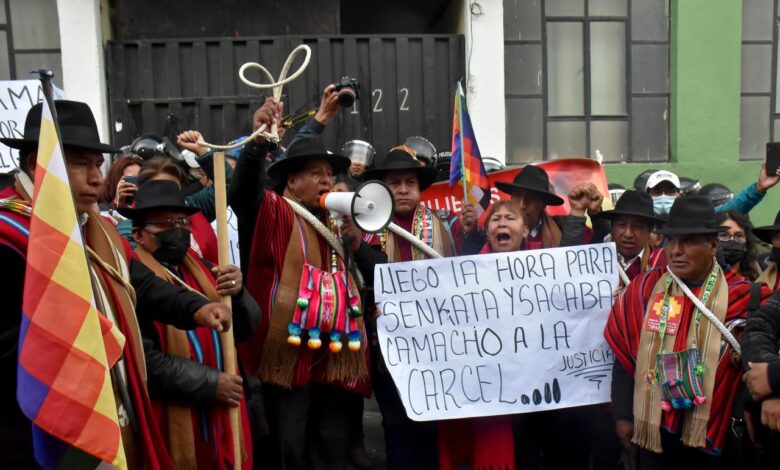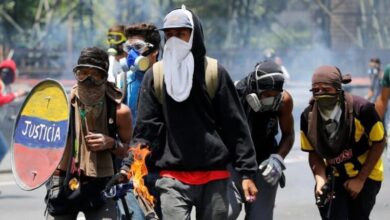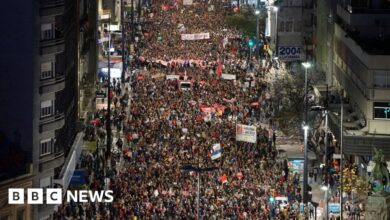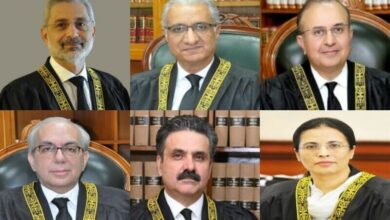
Electing Top Judges Has Been a Disaster in Bolivia
Electing top judges has been a disaster in Bolivia. For years, the process of selecting the highest court justices has been plagued by accusations of political interference, corruption, and a lack of transparency. This has severely undermined public trust in the judiciary and raised serious questions about the rule of law in the country. This post delves into the historical context of Bolivian judicial appointments, analyzes the current system’s failures, and explores potential solutions to this critical issue.
From a historical perspective, Bolivia’s judicial selection methods have fluctuated wildly, reflecting the country’s volatile political landscape. Different eras have seen vastly different approaches, some more successful than others in maintaining judicial independence. The current system, while seemingly structured, has consistently fallen short of its goals, leading to widespread criticism and a growing sense of disillusionment among Bolivians.
Historical Context of Bolivian Judicial Appointments: Electing Top Judges Has Been A Disaster In Bolivia

Bolivia’s system for appointing top judges has undergone significant transformations throughout its history, reflecting the country’s volatile political landscape and evolving conceptions of judicial independence. The process has oscillated between periods of greater political influence and attempts to establish more meritocratic and transparent mechanisms. Understanding this historical context is crucial to grasping the challenges currently faced by the Bolivian judiciary.The early republican period (1825-1952) was characterized by a highly centralized and politicized judicial system.
Appointments were largely influenced by the executive branch, with judges often serving at the pleasure of the president. This lack of independence severely hampered the judiciary’s ability to act as a check on executive power, contributing to instability and frequent power struggles. The selection process lacked transparency and accountability, leading to widespread perceptions of corruption and bias.
Judicial Selection under Military Dictatorships
Military dictatorships, frequent occurrences in Bolivian history, further exacerbated the politicization of judicial appointments. During these periods, the military directly appointed judges loyal to the regime, eliminating any pretense of independence. The judiciary became a tool of the ruling junta, used to suppress dissent and consolidate power. This era saw a complete erosion of judicial independence and the rule of law, leaving a lasting legacy of distrust in the judicial system.
Examples include the periods of rule under Hugo Banzer Suárez and Luis García Meza Tejada, where judges were handpicked for their political alignment, not their legal expertise.
Post-Dictatorship Reforms and Attempts at Independence
Following the return to democracy, various attempts were made to reform the judicial selection process and strengthen judicial independence. These reforms often involved the creation of judicial councils or nominating commissions with representation from various sectors of society, aiming for a more balanced and participatory approach. However, these attempts often fell short of their goals, hindered by persistent political interference and the lack of a strong institutional culture of independence within the judiciary itself.
These reforms often faced challenges in effectively implementing their intended mechanisms of checks and balances, due to political infighting and lack of robust enforcement mechanisms.
The Influence of Constitutional Changes, Electing top judges has been a disaster in bolivia
Several constitutional changes have significantly impacted the selection process. The 1967 Constitution, for example, introduced some mechanisms for greater judicial autonomy, although their effectiveness remained limited due to the ongoing political instability. Subsequent constitutions, including the 1994 and 2009 constitutions, included provisions aimed at enhancing judicial independence, such as establishing specialized judicial councils and introducing merit-based selection criteria. However, the actual implementation of these constitutional provisions has often been inconsistent, influenced by the prevailing political climate and power dynamics.
The 2009 constitution, under Evo Morales, aimed to strengthen the judiciary’s role but also led to concerns regarding potential executive overreach in judicial appointments.
Timeline of Significant Events
A timeline illustrating the evolution of Bolivian judicial appointments would show a pattern of cyclical reform and backsliding. For example, periods of attempted reform, such as those following the return to democracy in the 1980s and the adoption of the 1994 constitution, were often followed by periods of increased political influence and decreased judicial independence during times of political crisis or under authoritarian regimes.
A detailed analysis would show the correlation between political stability, constitutional changes, and the degree of independence enjoyed by the Bolivian judiciary throughout its history. This cyclical pattern highlights the persistent challenge of establishing a truly independent judiciary in a country with a history of political instability.
The crisis of confidence in Bolivia’s judiciary, stemming from its flawed system of electing top judges, is a serious threat to the country’s democratic institutions. While reforms are urgently needed, the path forward requires a multi-pronged approach addressing both the structural weaknesses of the system and the deeper cultural issues contributing to political influence and corruption. Only through comprehensive and sustained efforts can Bolivia hope to rebuild public trust and ensure an independent, impartial judiciary.
Bolivia’s experiment with electing top judges has been a complete mess, undermining judicial independence and creating a climate of uncertainty. It reminds me of how political careers can be so unpredictable; reading about Alex Salmond’s rollercoaster journey in this article, alex salmond went from the fringes to the mainstream and back again , highlights how quickly fortunes can change.
The parallels with Bolivia’s judicial woes are striking – both show the risks of prioritizing popularity over competence.
Bolivia’s experiment with electing top judges has been a complete mess, leading to a weakened judiciary and widespread distrust. The recent news about 84 illegal aliens found in dump truck texas man charged with human smuggling highlights how vulnerable populations are exploited, a problem exacerbated by weak governance. This lack of effective oversight, a direct result of the flawed judicial election process, only intensifies the crisis in Bolivia.
Bolivia’s experience with electing top judges has been, frankly, a mess. The lack of transparency and the resulting erosion of public trust are alarming. It makes you think about the importance of robust debate in political processes, like in Arizona where, as reported by candidate for Arizona governor Kari Lake’s campaign is hitting the road after her opponents refused to debate , the lack of direct engagement raises similar concerns about accountability.
The parallels between these situations, though geographically distant, highlight the crucial role of open dialogue in ensuring fair and effective governance. Ultimately, both cases underscore the need for greater transparency in selecting key decision-makers.



